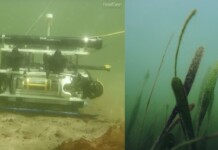 Some 35 million volunteers from 122 countries are expected take part this weekend in rubbish-clearing efforts along coastlines and waterways across the globe as part of the annual Clean Up the World Weekend. Volunteers will pick up trash on beaches, in villages and at various other sites around the world, among them Australia’s Sydney Harbour, the Nile River in Egypt, and Rio de Janeiro’s Copacabana Beach.
Some 35 million volunteers from 122 countries are expected take part this weekend in rubbish-clearing efforts along coastlines and waterways across the globe as part of the annual Clean Up the World Weekend. Volunteers will pick up trash on beaches, in villages and at various other sites around the world, among them Australia’s Sydney Harbour, the Nile River in Egypt, and Rio de Janeiro’s Copacabana Beach.
Last year, more than 450,000 volunteers removed 8.2 million pounds of debris (3.7m kg) from 18,000 miles (29,000 km) of coastline and waterways in 74 countries during the daylong cleanup.
It all started in 1989 when an Australian solo-yachtsman and builder, Ian Kiernan, appalled by the amount of rubbish he came across while sailing, organized a cleanup of the Sydney Harbour, during which some 40,000 volunteers removed rusted car bodies, plastics, glass bottles and cigarette butts from the water.
Since the UN Environment Programme (UNEP) took up the campaign 14 years ago, Clean Up the World has collected an estimated 3.5 million tons of rubbish, enough to fill 5,710 Olympic-size swimming pools.
 Developing countries in Africa, Asia Pacific and Latin America, including some of the world’s most troubled nations, have become enthusiastic participants. Africa has the highest participation in both the number of countries (28) and organisations (171) that have joined the Clean Up the World campaign so far, with the Democratic Republic of the Congo (DRC), Ghana, and Nigeria leading the way, the UNEP said.
Developing countries in Africa, Asia Pacific and Latin America, including some of the world’s most troubled nations, have become enthusiastic participants. Africa has the highest participation in both the number of countries (28) and organisations (171) that have joined the Clean Up the World campaign so far, with the Democratic Republic of the Congo (DRC), Ghana, and Nigeria leading the way, the UNEP said.
The United States had the most participants last year with 174,000 people cleaning some 3.9 million pounds of trash from nearly 14,000 miles of coastlines. The Philippines provided the second best participation with around 123,000 people, followed by Canada where slightly more than 21,000 volunteers helped out. The campaign has also registered record participation by groups from Argentina, India, Mexico, and Spain.
The Florida coordinator said Florida’s long coastline inhabited by dozens of endangered or threatened species makes it especially vulnerable to litter. Plastic bags are one of the most common items and they resemble jelly fish, which is one of the favorite foods of sea turtles.
Get involved this weekend by visiting Clean Up the World.
Separately, the UNEP announced in August that Afghanistan’s leaders recently approved regulations to protect the ozone layer, which will allow the authorities to control the transboundary trade in ozone depleting substances.



















